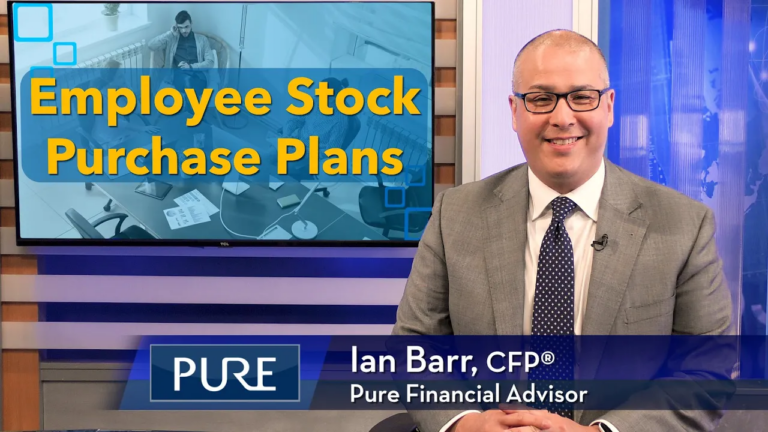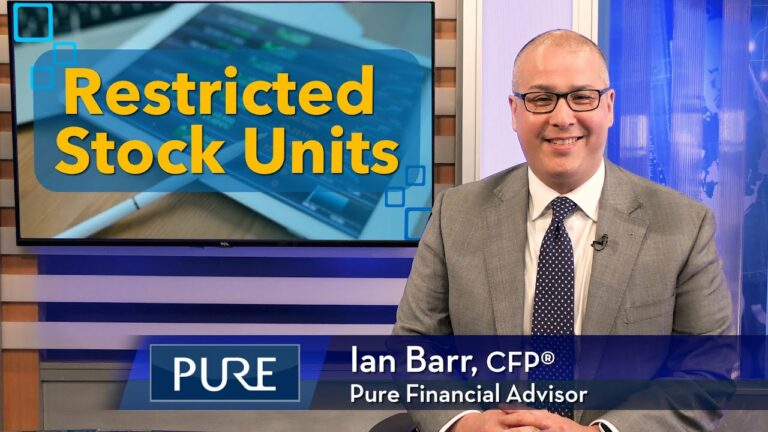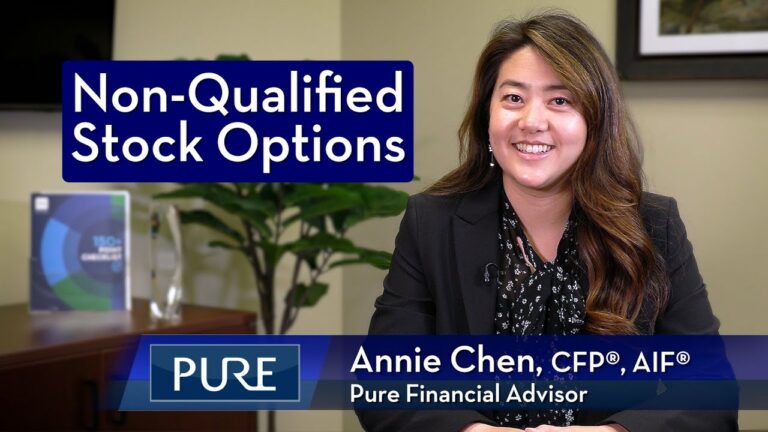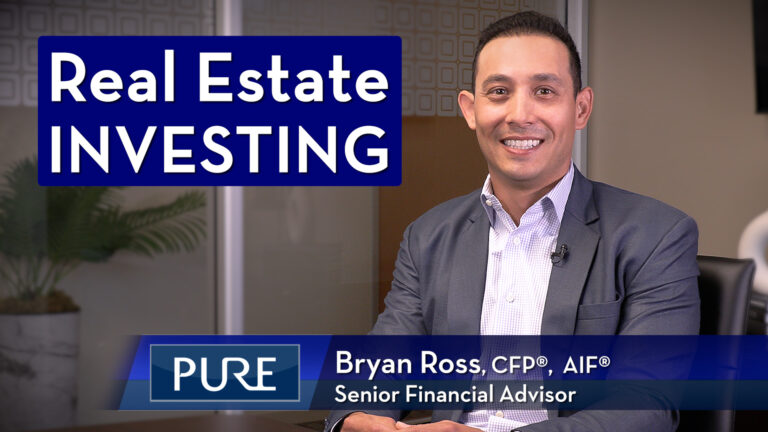In April, we celebrate Financial Literacy Month, emphasizing the vital role of financial education for everyone of all ages. Pure’s team of financial professionals recently participated in a one-day visit to the Junior Achievement of San Diego County, a non-profit dedicated to empowering youth to take charge of their future success.
Transcript
Pure Financial Advisors is here volunteering at the Junior Achievement finance park. It’s important to be active in the community because talking about finance is not necessarily something that we do, and this is the next generation. Pure was happy to donate $3,300 to the Junior Achievement finance park. So, what that goes towards is their transportation and education for the day.
Right now, the kids are checking out different career opportunities, all the TV’s in the background have different career paths and jobs and so they’re doing a little bit of research so that they can go in and narrow down what they might want to do in the future. Once they split into groups, they’re basically going to get assigned a profile based on the job that they thought they might. It’s going to give them an income and a credit score and then we’re going to walk through different scenarios so they can learn about budgeting, saving, setting aside money for their needs versus wants, so they kind of can see how real-world situations might work.
I volunteer today because I wanted to help make an impact on the kids here and then help them learn about how to plan for their futures. I think what the kids were most surprised of initially was when they looked at how much they made let’s just call it $4,000 a month right but then how much they actually get to keep because of taxes, maybe they keep $3,000. So they really didn’t make $4,000 they made $3,000 right off the bat, so now you get to see first-hand how much you make taxes, what you need to spend the money on, and there’s really not as much left over as you might imagine. I think that’s kind of a bit of a wake-up call.
Working with the kids today was a lot of fun, trying to bring out answers and communication and conversation with them and it took a little while to get people warmed up. It’s really fun once they start getting engaged and the group we were talking, we expressed how there are people that we’ve talked to over the years in their 50s and 60s that we have the same conversations we’re having with these kids today because a lot of folks have not had this kind of financial education. Just getting a day’s worth of this, I think, puts people in a much better course and really gets them ahead of so many other people.
They were actually more asking about life advice rather than just looking at the strict simulation about like what are some of the things that you would tell us to do. If you were to start over so that was really cool to ask that they were actually interested in it. I know one of the girls was working at the zoo and she’s 16 years old and so she’s got a couple of dollars in the bank account and she’s asking like what do I do with it. I think everybody, if they could go back 10-15 years would put a couple extra bucks away and maybe not spend the extra dollars that they would have some of the frivolous things. So start young and be consistent, don’t stop, everyone’s going to go through some sort of financial hardship at some point but you got to be consistent and stick to the program because it’ll pay dividends in the future.
The goal is just to kind of teach kids what to expect in real life right. I think there’s kind of lacking education around what that looks like and we’re just here to try to give people information on how to move forward once they’re done with high school what comes next. As a financial advisor, meeting with our clients day in and day out, one of the conversations that come up is, “I wish I would have known about budgeting and finance earlier in life,” so here volunteering at the Junior Achievement finance park, we get to give that back to these high school students.
Subscribe to our YouTube channel.
IMPORTANT DISCLOSURES:
• Investment Advisory and Financial Planning Services are offered through Pure Financial Advisors, LLC, a Registered Investment Advisor.
• Pure Financial Advisors LLC is not affiliated with or endorsed by any non-profit organizations.
CFP® – The CERTIFIED FINANCIAL PLANNER™ certification is by the Certified Financial Planner Board of Standards, Inc. To attain the right to use the CFP® designation, an individual must satisfactorily fulfill education, experience and ethics requirements as well as pass a comprehensive exam. Thirty hours of continuing education is required every two years to maintain the designation.
AIF® – Accredited Investment Fiduciary designation is administered by the Center for Fiduciary Studies fi360. To receive the AIF Designation, an individual must meet prerequisite criteria, complete a training program, and pass a comprehensive examination. Six hours of continuing education is required annually to maintain the designation.
CPA – Certified Public Accountant is a license set by the American Institute of Certified Public Accountants and administered by the National Association of State Boards of Accountancy. Eligibility to sit for the Uniform CPA Exam is determined by individual State Boards of Accountancy. Typically, the requirement is a U.S. bachelor’s degree which includes a minimum number of qualifying credit hours in accounting and business administration with an additional one-year study. All CPA candidates must pass the Uniform CPA Examination to qualify for a CPA certificate and license (i.e., permit to practice) to practice public accounting. CPAs are required to take continuing education courses to renew their license, and most states require CPAs to complete an ethics course during every renewal period.












